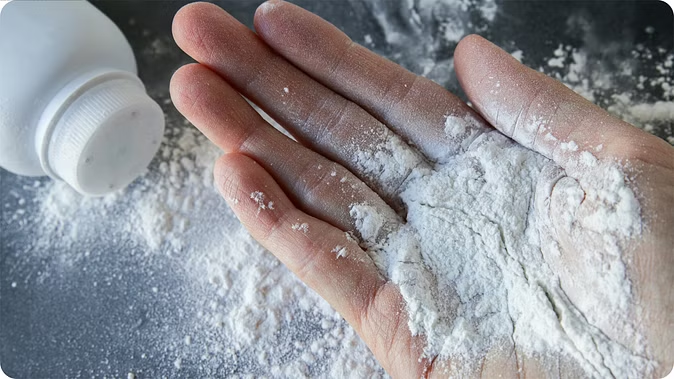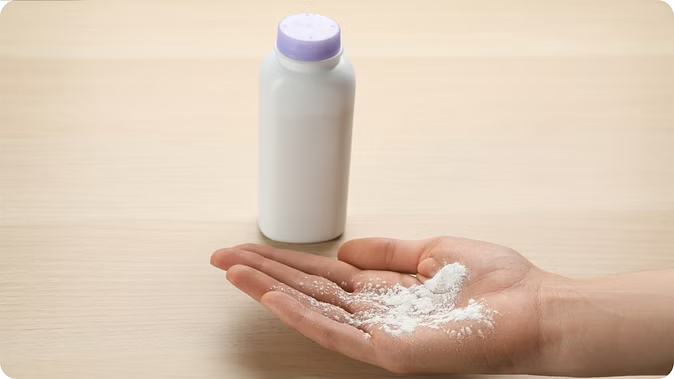Do you apply talcum powder to your child in summer? If yes, then be careful, recent studies have found such elements in it which may increase the risk of serious diseases like cancer. Apart from talcum powder, in earlier studies, many other cosmetic products were also found to increase the risk of serious diseases.

In recent years, scientists have been expressing concern in studies that talcum powder (baby powder) of many companies may contain an element called asbestos. Researchers consider asbestos to increase serious diseases, it can also cause cancer risk.
Risks of talc and asbestos
It is worth noting that 'talc' is a mineral extracted from the earth. It is considered very beneficial in absorbing moisture and reducing friction, so cosmetic companies often use it in baby powder, eye shadow, and other products. Similarly, asbestos is also a group of minerals similar to talc which is also mined. It is often found in the same area as talc.
Studies have shown that if asbestos enters the body through breathing, it can increase the risk of cancer, so cosmetic companies need to choose mining sites carefully and test talc regularly.
The powder may contain carcinogenic elements
Scientists say that people who often use powder are more likely to enter the body through breathing. This can increase the risk of cancer in the body. The World Health Organization's International Agency for Research on Cancer has also listed it as carcinogenic (cancer-causing).
Some studies suggest that people involved in mining and processing talc may have a higher risk of cancer due to these harmful elements, but it is not clear whether this is due to minerals or other things underground.
Risk of ovarian and stomach cancer too

The results of many studies conducted on the risks of talcum powder and the health problems caused by it have been mixed. Researchers have said that talc may increase the risk of ovarian cancer in people of certain age groups. Some studies have also shown the risk of stomach cancer due to it, although more studies are still needed to confirm this.
It is worth noting that companies making talc-based powder have also faced thousands of lawsuits regarding their products.
So what powder should not be used?
The American Academy of Pediatrics advises not to use any kind of powder for children, whether it is talc-based or not. Health experts say that children can have lung-related problems due to the inhalation of any type of powder particles.
Experts say that the link between talcum powder and cancer is not 100 percent clear, but staying away from it is considered safer.
(PC: ISTOCK)










